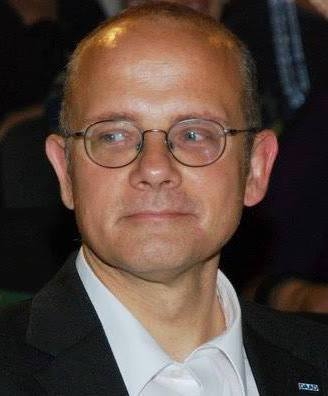Dr. Stefan Meister is Program Officer at the DGAP Center for Central and Eastern Europe of the Robert Bosch Stiftung and has been with the German Council on Foreign Relations since 2008. He studied politics and history in Jena, Leipzig and Nizhnii Novgorod, and was a research fellow at the Friedrich Schiller University of Jena as well at the Warsaw Center for International Relations. He is an expert on Russia's policy towards the post-Soviet countries and the Eastern Partnership countries.
1. How would you assess the results of Yanukovych's first year of presidency in comparison to those of the previous Orange leadership?
Yanukovych was able to stabilize his power and to place his appointees into key positions. Contrary to the Orange leadership, the competition between President and Prime Minister stopped, which had been a main reason for the stagnation, in the past 5 years. He was able to establish a relatively good political basis for necessary reforms of the economy. With the Black Sea Basis-for-Gas deal with Russia, he improved the budget situation but increased the dependency on Russia. This deal will hinder necessary structural reforms in the energy sector and helps first of all business interests. Unfortunately Janukovich did not use his political power to start fundamental reforms, but instead to put mass media, civil society organisation and opposition under pressure. Political pluralism decreased and polarization in the society increased. Against the background of the bad economic situation and the increasing polarization in society, it needs to be concluded that Yanukovych did not use the possibilities he had to show that he is a responsible person, but like most of the post-Soviet elites he and his circle have short term interests.
The EU should use these instruments to get from Ukraine more reforms in fundamental economic, political and social sectors and should not devaluate its main foreing policy instruments by way of forging an as fast as possible integration. This would also send a wrong signal towards Russia and other post-Soviet countries.
3. Could and should the current pro-Russian German position be replaced by a pro-Ukrainian position? To which degree may domestic political changes in Germany play a role for its future Eastern policy positions?
Germany should not replace its "Russia-first-policy" with a Ukraine first policy. Germany and Europe need a two-track approach towards the post-Soviet countries: On one hand, Berlin need to have good relations with Russia while also showing Russia that they have different interests in some fields. On the other hand, Germany need to have a policy towards Ukraine and the other post-Soviet countries without looking all the time towards what Moscow thinks. Germany and the other EU-member states need to develop a vision for the post-Soviet countries without Russia, also because the whole region will in the long term develop away from Russia. No, I don't see any fundamental change in Germany's Eastern policy because of a change of leadership or in the Bundestag - this is also because of the huge influence of the German economy on political decision makers. But there is an increasing understanding in the German political elite that our past approach has failed and that we need to develop a more balanced policy towards our Eastern neighbors.
4. Do you have any specific advice for the Ukrainian government to change Ukraine's image in Germany for the better, and improve Ukraine's attractiveness for German investors?
Start fundamental economic reforms, increase rule of law, improve the investment climate, help your small and medium size companies to develop through more competition. Make political decisions more transparent, don't put media under pressure and support, for what Ukraine stood in the past: One of the few countries in the post-Soviet space with pluralism. Strengthen political insitutions and political competition.
5. Did the decision of Viktor Yanukovych to prosecute the former president Leonid Kuchma for the murder of a journalist add credibility to the current government and improve its image in the West? What are your expectations about how this case should be resolved?
I don't think so. It looks like a dubiose desicion, to get a better image in the West, but not to make real progress in the Gongadze case. I don't think that the aim is to find out the truth, but to put political (and economic) partners and opponents under pressure.
6. Do you think Ukraine will ever enter the EU, and, if so, under which conditions and when approximately?
I am very sceptical and do not believe that the EU is able in a middle- or even long-term perspective to integrate new members. Maybe it is also not necessary: For Ukraine, economic integration, freedom of goods, people and services should be attractive anyway. To reach this, Ukraine has to stopp its bargaining policy between Russia and the EU and to start real fundmental political and economic reforms and to change the rules of the game.
7. Do you think Tymoshenko's arrest will affect the signing of an association agreement between Ukraine and the EU?
The arrest was expected because she is the only challenge for Yanukovych at the next elections. For him it is also a test how the EU and Russia will react. I think the EU and its member states will criticize this arrest and the whole process, but there is no common position in the EU if they should sanction Yanukovych or not. Tymoshenko with her history is a controversial person. In the end the interest of the EU to get the association agreement with Ukraine is higher than to have an open conflict with Yanukovych because of Tymoshenko.
Olena Tregub is a GMAP student at the Fletcher School of Law and Diplomacy at Medford, Mass., and works as a freelance journalist, in Washington, DC, and Kyiv, Ukraine.




